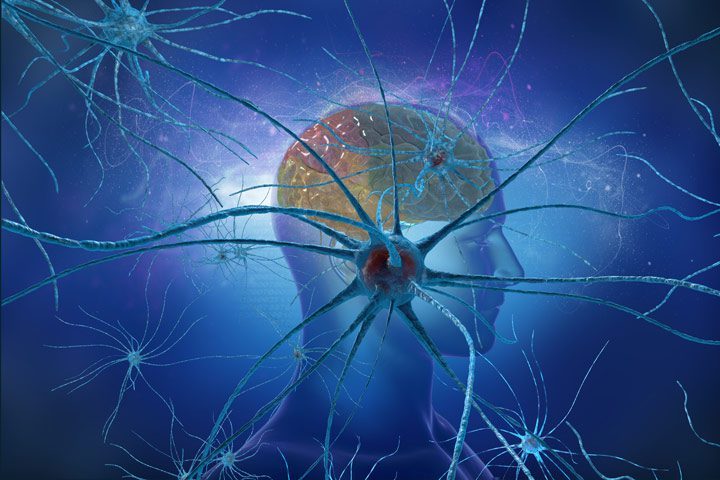
Many physicians prescribe antidepressants for individuals with mood disorders such as anxiety, chronic pain, and depression. In certain circumstances, medication is only necessary for a short time, while other diagnoses might require a change in the prescription dosage or a different type as part of effective long-term treatment. If you need to stop taking antidepressants, here’s what you should know.
How Antidepressants Often Help
Depending on the condition, antidepressants adjust brain chemistry to achieve the desired effect. The Mayo Clinic and WebMD provide these explanations:
- Tricyclics (TCAs) and serotonin norepinephrine reuptake inhibitors (SNRIs) raise serotonin and norepinephrine levels in your brain. This helps regulate mood to alleviate depression. Brands that are TCAs include Elavil, Surmontil, and Aventyl, and SNRIs include Cymbalta, Effexor, and Pristiq.
- Selective serotonin reuptake inhibitors (SSRIs) raise serotonin. This makes it easier for neurons to transmit messages, which is often helpful for both anxiety and depression. Common SSRI brands include Lexapro, Prozac, and Paxil.
- Monoamine oxidase inhibitors (MAOIs) stop monoamine neurotransmitters from breaking down. This enables better communication between serotonin and dopamine, the “feel good” chemicals of the brain. MAOI brands include Nardil, Emsam, and Marplan.
Often when doctors prescribe a particular medication, they’re relying on numerous factors to come to a diagnosis and determine which treatment is ultimately beneficial.
However, many people need two–to–three months before they experience a significant mood shift, or they may experience undesirable side effects on the current medication and require a different approach. Depending on the overall wellness goals, it might be necessary to switch medication.
Some people who experience temporary conditions of depression such as postpartum disorder or SAD and are initially prescribed low-dose antidepressants might not need a change, but still need to taper off under the recommendation of their healthcare provider.
Easing Off Antidepressants Reduces Withdrawal Symptoms
Healthline reports that “only one–in–three people will be symptom-free after taking one antidepressant.” So if it’s necessary for you to make a change, understand that this is quite common and shouldn’t be looked upon as some type of failure or setback. Maintaining good communication with your therapist or other health care provider allows gradual medication adjustments to be more effective.
Under no circumstances should you stop taking your prescribed treatment without guidance from your attending physician. You’ll often need at least a few weeks to adjust either to no longer needing medication or adapting to a new one. The Mayo Clinic outlines some typical antidepressant withdrawal symptoms:
- Anxiety
- Dizziness
- “Electric shock” or tingling sensations
- Flu-like symptoms, such as achy muscles and chills
- Headaches
- Insomnia
- Irritability
- Nausea
- Tiredness
- Unusual or vivid dreams
Antidepressants aren’t classified as addictive substances, but some individuals briefly have more intense withdrawal symptoms as their brains adjust to neurotransmitter fluctuations. Stopping medication suddenly might seriously compound antidepressant withdrawal symptom effects.
Another important consideration for effective antidepressant medication management is to stabilize the mind to reduce the chance of worsening the primary condition, especially depression. Think of driving a car at 65 mph and then slamming on the brakes. In the neurotransmitter confusion, a person can experience a rush of symptoms that might be mistaken for antidepressant withdrawal, when instead they’re experiencing the return of their condition—perhaps to state before treatment.
If this happens, a healthcare professional might ease the transition by prescribing a different antidepressant or another medication altogether.
Using Additional Therapies for Mood Disorders
One notable advantage to seeking inpatient treatment for conditions such as anxiety disorder, bipolar disorder, depression, and other mental health illnesses is access to a team of healthcare professionals. This ensures that a more individualized scope of care provides a combination of not only medication options but also additional therapies to get to the root cause of the issues.
In a treatment center, you might be introduced to numerous approaches that complement pharmacological treatments, such as:
- Alternative remedies for pain management to lessen the effects of anxiety and depression while dealing with injury recovery or chronic pain.
- Progressive treatment modalities such as EMDR, brainspotting, and somatic experiencing to help reduce or even eliminate the effects of trauma, which in turn might help alleviate the impact of anxiety, bipolar disorder, or depression.
- More thorough care with complicated grief and loss treatment to move beyond pervasive sadness and stress.
- An effective integration of a nutritional plan and exercise into therapeutic applications—proven partners to better manage mental health.
- Various holistic practices to encourage whole-person wellness.
There are many advances in mood disorder management that provide hope to many people seeking balance. These aren’t cures, but they help put you in control of how you manage antidepressant withdrawal and your overall condition.
To help you begin a healing journey, Cottonwood Tucson provides a series of self-assessment quizzes that allow you to make informed choices about the care you should receive. If you have any further questions, please contact us any time, 24/7.
Research Links:
- Stopping Antidepressants: Is it Withdrawal? WebMD.
- 10 Natural Depression Treatments. WebMD.
- 10 Surprising Antidepressant Facts. Health.
- Fears and Facts About Antidepressants. WebMD.
- TRICYCLIC ANTIDEPRESSANTS (TCAS). RxList.
- Tricyclic Antidepressants and Tetracyclic Antidepressants. Mayo Clinic.
- Selective Serotonin Reuptake Inhibitors (SSRIs). Mayo Clinic.
- Monoamine Oxidase Inhibitors (MAOIs). Mayo Clinic.
- Serotonin-Norepinephrine Reuptake Inhibitors (SNRIs). Healthline.
- What You Should Know About Your Antidepressants. WebMD.







